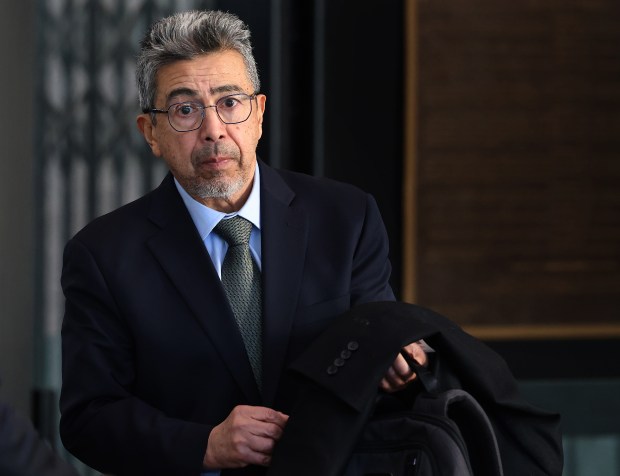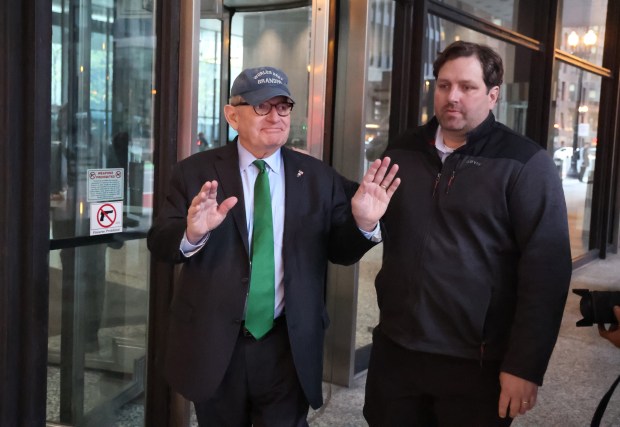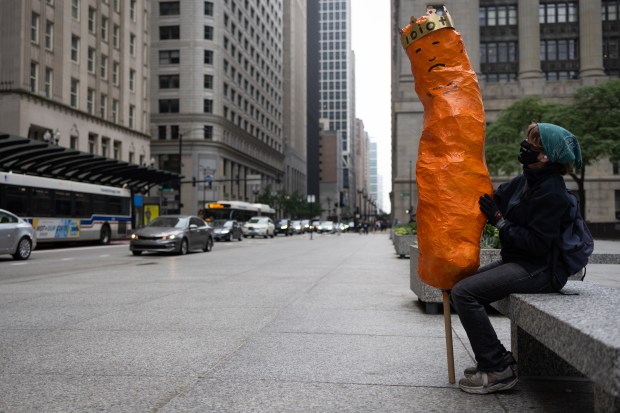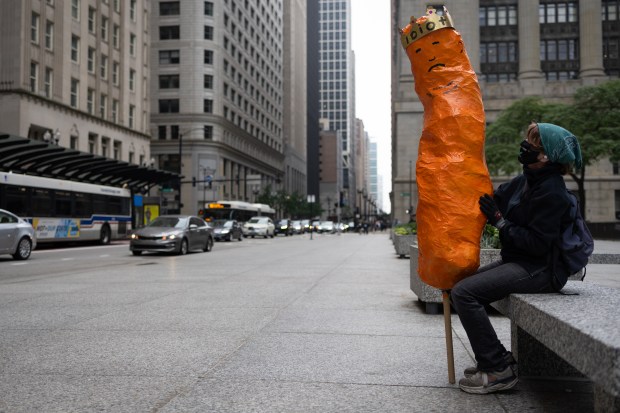The federal judge in the racketeering case against former Illinois House Speaker Michael Madigan hinted Thursday that prosecutors may have to significantly alter their game plan if they want to proceed, given this week’s U.S. Supreme Court ruling that walks back a key bribery statute contained in Madigan’s indictment.
The Supreme Court ruled 6-3 on Wednesday that the bribery statute commonly known as 666, which is its number in the federal criminal code, applies only to quid pro quo agreements and does not include “gratuities,” meaning rewards given to elected officials after the fact.
The fallout from the ruling will be particularly acute in Chicago, where federal prosecutors have used the 666 law for years to bring political corruption indictments, including Madigan’s, where it makes up five of the 23 overall counts charged against the longtime speaker of the House.
In a minute order posted to the docket Thursday, U.S. District Judge John Robert Blakey ordered both sides to meet and confer on the issues — including whether they should proceed with pending motions to dismiss and if the U.S. attorney’s office will seek a superseding indictment — and report back to him by July 8.
“The court reiterates the importance of maintaining the current trial date (which requires sufficient notice to the defense to litigate and otherwise defend the charges), and notes that it would not be in the interest of justice to litigate motions regarding the current indictment if the grand jury might issue a new charging instrument,” Blakey wrote.
Blakey’s order is the first of what likely will be a series of fast-moving legal developments in Madigan’s case as prosecutors seek to revamp the charges in accordance with the Supreme Court’s guidance.
With the Oct. 8 trial a little more than three months away, obtaining a superseding indictment — which would require the usual approvals from the U.S. Justice Department in Washington because of Madigan’s status of an ex-public official — could be complicated.
The motions to dismiss certain counts have been pending before Blakey for more than a year, in part because the Snyder decision was looming.
There has been no indication that prosecutors will simply drop all the charges against Madigan, and prosecutors have previously said they are willing to forgo any arguments to jurors that the benefits provided to Madigan were gratuities.
Among other options would be for federal prosecutors to trim the indictment down to allegations that do not involve the 666 statute or for them to find a way to use different federal statutes to charge the same conduct.
Madigan, 82, who led the state Democratic Party for more than two decades and served a record 36 years as the leader of the House was charged in March 2022 with participating in an array of bribery and extortion schemes from 2011 to 2019 aimed at using the power of his public office for personal and political gain.
Also charged in the indictment was Michael McClain, a former state legislator, Madigan confidant and lobbyist for several clients, including utility giant Commonwealth Edison. McClain was convicted last year of orchestrating an alleged bribery scheme by ComEd as part of the “ComEd Four” case.
That same alleged scheme forms the backbone of the indictment against Madigan and McClain, outlining a plan by the utility giant to pay thousands of dollars to lobbyists favored by Madigan in order to win his influence over legislation the company wanted passed in Springfield. The indictment alleges that AT&T Illinois also participated in a similar scheme to influence the speaker.
Both Madigan and McClain have denied any wrongdoing. Both ComEd and AT&T have entered deferred prosecution agreements with the U.S. attorney’s office in which they have acknowledged culpability. ComEd agreed to a $200 million fine and AT&T agreed to a $23 million fine. The government agreed to drop pending charges of bribery against both companies once their cooperation is complete.
Among the counts of the current indictment that involve the 666 statute is a pivotal conversation from August 2018 when Madigan met in his downtown Chicago law office with then-Ald. Danny Solis, 25th, to discuss Solis’ appointment to a lucrative state board position.
Former Ald. Daniel Solis, who was an FBI mole, arrives at the Dirksen U.S. Courthouse for the Edward Burke corruption trial on Dec. 12, 2023.
Solis, who unbeknownst to Madigan was an FBI mole, made it clear he’d helped bring law business to Madigan and wanted something in return once he retired from City Hall, perhaps a position with the Commerce Commission or Labor Relations Board, which Solis said were both “very generous in their compensation,” according to federal prosecutors.
“Don’t worry about it,” Madigan allegedly said during the conversation, which was secretly being videotaped by Solis. “Just leave it in my hands.”
In addition to the Solis board appointment, the statute was used to charge an alleged scheme to steer a ComEd board seat to Democratic political operative Juan Ochoa, payments ComEd made to former 13th Ward Ald. Frank Olivo, former 23rd Ward Ald. Michael Zalewski and others, and an alleged push by Madigan to win law business from the developers of a parcel in Chinatown.
The Supreme Court’s ruling impacts a number of other pending Chicago political corruption cases, most notably the ComEd Four case.
Since the case relied heavily on allegations of gratuities, sentencings have been delayed since January while the parties awaited the Snyder decision.





